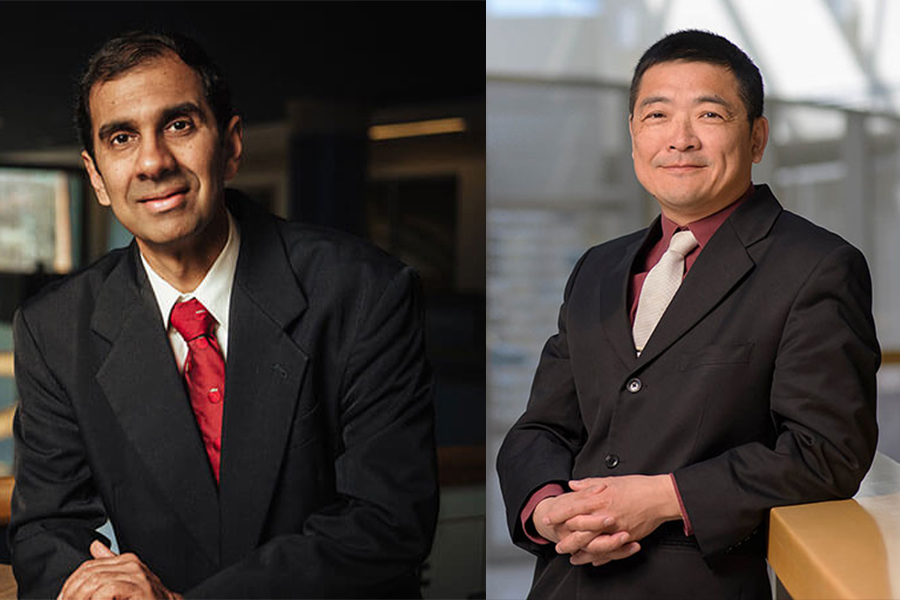A trio of researchers from Purdue University's Elmore Family School of Electrical and Computer Engineering was awarded a grant from the FuSe2 competition. This project aims to create energy-efficient, powerful computer chips that can run advanced AI models like GPT directly on personal devices.

Haitong Li, Assistant Professor of Electrical and Computer Engineering
The U.S. National Science Foundation (NSF), in collaboration with Ericsson, Intel Corporation, Micron Technology, and Samsung, has announced funding through the Future of Semiconductors (NSF FuSe2) competition. This investment will drive cutting-edge research and education in semiconductor technologies, strengthening U.S. leadership in the field and addressing critical challenges such as emerging computing needs, energy efficiency, performance optimization, manufacturing, and supply chain resilience. FuSe2 supports 23 cutting-edge research projects across 15 different states and 20 institutions.
A trio of researchers from Purdue University’s Elmore Family School of Electrical and Computer Engineering was awarded a grant under the theme “Collaborative Research in Domain-Specific Computing.” Haitong Li, Assistant Professor of ECE, is the principal investigator (PI) for the project, entitled “Bridging Atomic Layers and Foundation Models: An Indium-Oxide-Based Versatile Neural Computing Platform.” Anand Raghunathan, Silicon Valley Professor of ECE, and Peide Ye, Richard J. and Mary Jo Schwartz Professor of ECE, are the co-PIs.
This project aims to create energy-efficient, powerful computer chips that can run advanced AI models like GPT directly on personal devices, reducing reliance on large, energy-hungry data centers and democratizing access to advanced AI for broader society. The team synergizes advancements in ultra-thin oxide semiconductor materials with novel circuit designs and new AI algorithm optimizations to forge a versatile computing platform, which will process AI tasks more efficiently than current silicon-based chips. Additionally, the project seeks to educate the next generation of students in AI and semiconductor technologies, contributing to a more sustainable and equitable future.

Anand Raghunathan (right), Silicon Valley Professor of Electrical and Computer Engineering, and Peide Ye, Richard J. and Mary Jo Schwartz Professor of Electrical and Computer Engineering
Li says it is truly an honor to receive this award from the Future of Semiconductors initiative, and he is grateful for the support from NSF and its industry partners.
“We are excited about the scientific inquiries at the atomic thickness level of materials, and the opportunities to rethink AI hardware design by harnessing unique properties of oxide semiconductor devices,” said Li. “Our team’s holistic ‘co-design’ approach spans the entire computing stack––from materials and devices to chip architectures and AI algorithms. This strategy offers a pathway for tackling global computing challenges that are unattainable with siloed solutions. I am equally thrilled about the opportunity to integrate cross-cutting co-design principles into our students’ educational experiences. They are, after all, integral to the future of semiconductors and computing.”
The NSF FuSe2 awards aim to accelerate advancements in semiconductor technology, supporting the broader objectives of the "CHIPS and Science Act of 2022" to bolster the U.S. microelectronics sector and stimulate regional economic growth nationwide. As demand rises for advanced computing, particularly in artificial intelligence and machine learning, the need for efficient, scalable, and reliable semiconductor solutions is more urgent than ever. The funded projects will explore innovative strategies to overcome current limitations in semiconductor design and manufacturing, ensuring the U.S. remains a global leader in technological innovation.
